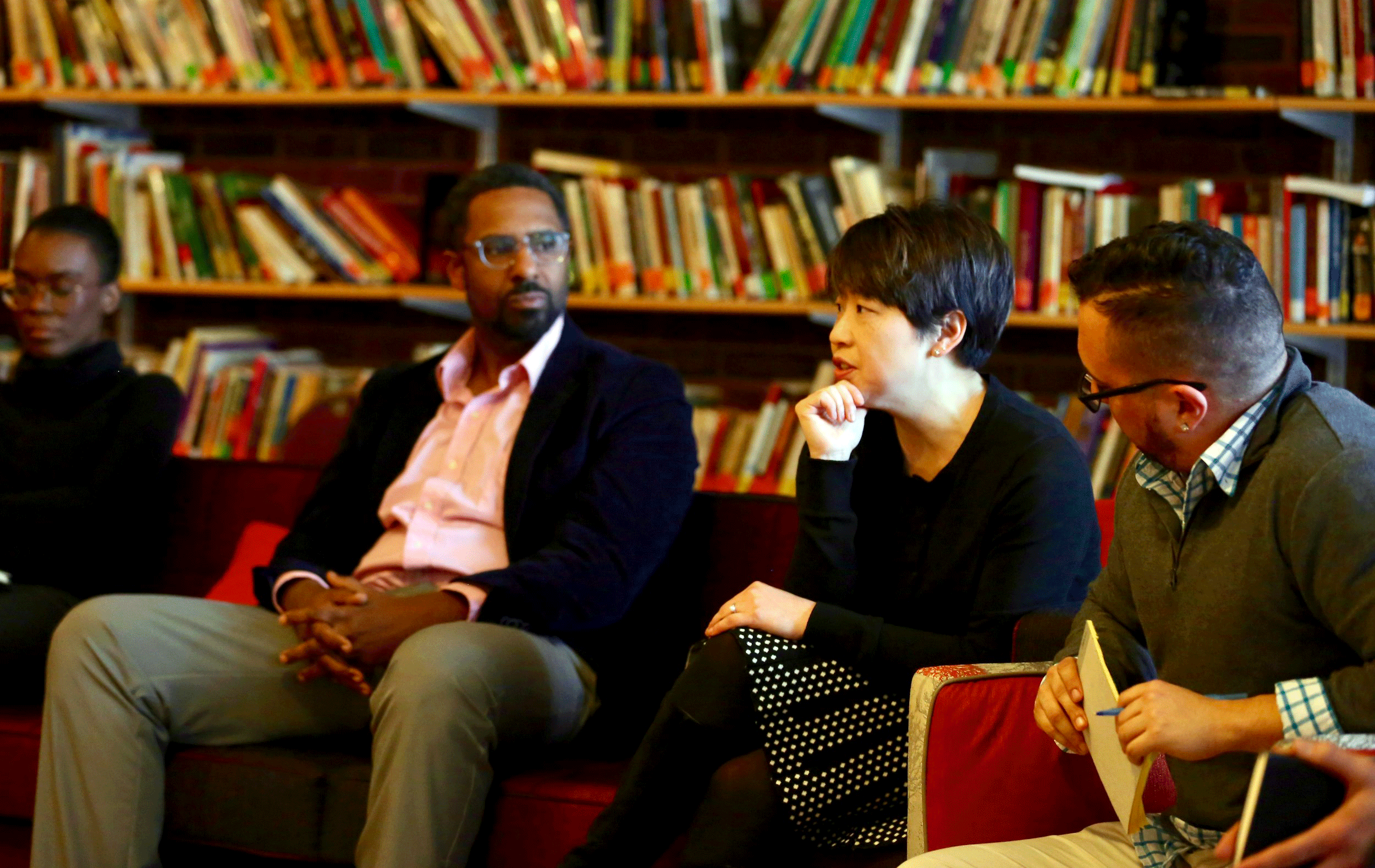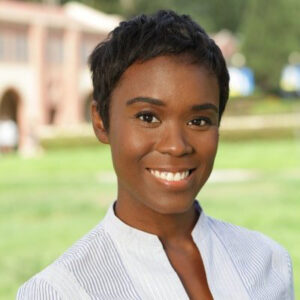Center for Gender, Race, and Area Studies celebrates a decade of impact

The Center for Gender, Race, and Area Studies (CGRAS) marks a decade at Clark this year and welcomes a new director: Asha Best, assistant professor in the Graduate School of Geography.
Established in fall 2014 by the Office of Diversity and Inclusion and the directors of Women’s and Gender Studies, and Latin American and Latino/a (now Latinx) Studies, CGRAS is housed in Dana Commons.
We asked Professor Best about CGRAS’ impact and upcoming initiatives, including a new Undergraduate Fellows Program that, she says, “will offer funding for students to work directly with faculty for a summer or semester on research or creative work.”

Why are you interested in serving as director of CGRAS?
One of the reasons that I was excited to join the leadership of the Center is that it is a community of thinkers that is deeply engaged not only in research but also the practice of addressing social inequity.
How has CGRAS responded to, and been shaped by, the culture and history that surrounds it, both on campus and in the greater world?
We convene on issues that matter — we’ve held talks on abortion pill politics, the death of Eric Garner, and the past future of trans activism. Abbie Goldberg, director of the Women’s and Gender Studies Program and one of the Center’s leaders, held a conference with 300 scholars and activists on LGBTQ priorities for the Biden administration.
This year, we are running a series of events on the theme of “Democracy, Repression and Resistance” where we’re touching on a range of topics from climate activism to the politics of coercion and consent in China. We are also working on a pre-election installation with our colleagues at the Becker School of Design & Technology.
The practice of being engaged in the world around us is part of the culture of the Center.
If you think about what happened in 2020, for example — that was a pivotal moment not just for the Center and the campus but for nation. On the one hand, you had the rise of a COVID-19, which brought with it an incredible amount of loss and uncertainty and, really, the reshaping of our social lives. And on the other hand, this was a time of intense protest and conversation about experiences of racism and injustice in the U.S. And so what we saw were intense clashes around safety, human rights, and the role of policing across the U.S.
While students were leading the charge and trying to push for greater change on campus and the creation of more equitable spaces, you also had faculty from the Center participating in Saturday teach-ins on abolition. Jie Park (former director) and Eric DeMeleunaere (CGRAS core faculty) re-established the Difficult Dialogues series on campus, and Center faculty taught pop-up courses on COVID-19 and how the pandemic illuminated and worsened existing inequities.
How might faculty become involved with CGRAS?
Our faculty brown-bag lunches are great spaces to share research. We definitely want to foster more faculty research collaboratives and more opportunities for intersectional research.
How might students become involved?
The Center has always provided mini-grants for student research and conference travel, and this year we are excited to roll out a new Undergraduate Fellows Program that will offer funding for students to work directly with faculty for a summer or semester on research or creative work.
Students can also reach out to the Center. We would love to hear their ideas for how the Center can support their interests.
What opportunities for research might there be?
We have a couple of new research initiatives and areas that we want to explore. We are currently working on a project — headed by Mindy Marchand (one of our faculty affiliates) — with the Bad Old Days Posse, archiving pre-Roe abortion histories. We have a second project working with Prisoners’ Legal Services of Massachusetts analyzing data from a survey that they conducted with incarcerated people in Massachusetts, post-COVID. I’d like to see us branch into areas like housing justice and the housing crisis. These are opportunities for students to do work that has impact in the real world — we’d love to have more students involved!
What are students most curious about when taking CGRAS courses? What questions do they ask? How do they hope to apply this knowledge to their professions, and lives, post-graduation?
It’s funny — I just kicked off a new class by asking my students the (same) first-day-of-class question that I always ask: “Why are you taking this course,” and one of them responded by saying “We learn a lot about injustice — but what does justice look like?” And I thought that was a really profound answer. I think students understand the challenges ahead of them and they want to know how to tackle seemingly big and unmovable social issues — like structural racism, like transphobia, like the myriad other entrenched systems of inequity.
Part of our mission at the Center is use every tool at our disposal to challenge global inequality.
Not only do the faculty at the Center come from different backgrounds and disciplines and programs, they bring together a wide array of research — from structural racism, to militarism, to nationalism, to prisons, to resource extraction, to the study of social movements and educational inequality, to the study of kinship and family structures, to utopian futures. Whether that involves documenting the struggle around reproductive rights or racial injustice using oral history methods, or learning to map the loss of housing and shelter in war zones, or learning participatory methods for working with underserved communities, or using photography to document the stories of immigrant communities — our students can tap into dynamic ways of engaging with and responding to social issues.
As the higher education landscape changes, some have questioned the purpose of a liberal arts education, and of race and gender studies specifically. What is the role of ethnic and gender studies at the moment?
In some ways the pushback against affirmative action, and fields like critical race studies, ethnic studies, gender and sexuality studies, isn’t new at all. But the landscape is changing, and I think higher education is only beginning to grapple with the impacts of the ban on affirmative action, the dismantling of DEI initiatives, and the pushback against programs like Africana and women’s and gender studies. It’s devastating to watch so many hard-won gains being lost.
What this means to me, and I think many of the faculty affiliated with the Center, is that our work is more important than ever. It’s important to keep in mind that a substantial number of students at Clark are first-generation college students, and more than half of our students identify as LGBTQ+, and more than half of our students are women. So, we have a diverse student body, and the fields of racial and gender studies — which ask fundamental questions about things like difference, sovereignty, rights, and justice — hit home for our students.
Certainly, part of the importance of the teaching and research that we do is that it’s important for students to be able to see themselves reflected in what they study — but it’s bigger than that. These are fields that contain important lessons for how people across the world, in all sorts of contexts, have strived for justice in the past, and how we now can think about how to create livable futures.
Why is working and researching in this subject area fulfilling to you?
Ultimately, I think all of us study hard topics because we have hope that the future can be different.
— Based on a conversation with Melissa Hanson and Meredith Woodward King


